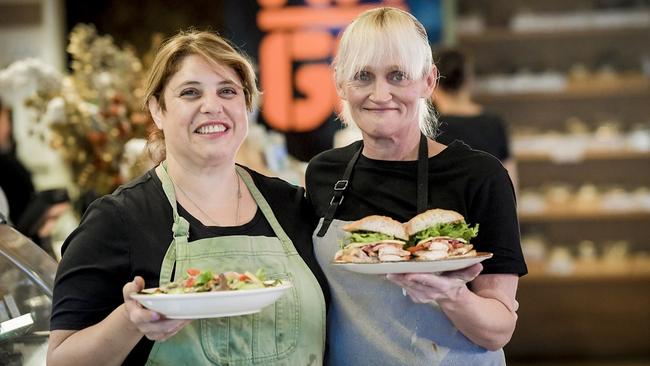Workskil report reveals the industries hiring Australia’s disadvantaged job seekers
Vulnerable and disadvantaged women are being snapped up for jobs in two struggling industries, new data says. See the industries desperate for workers.
Business
Don't miss out on the headlines from Business. Followed categories will be added to My News.
Vulnerable and disadvantaged female job seekers are being snapped up for roles in hospitality and tourism, with employers desperate for staff as the industry emerges from Covid-19.
According to a new report from not-for-profit employment services providers Workskil Australia, the hospitality and tourism sector is the largest recruiter of women on unemployment benefits, with cafe, restaurant and hotel operators ramping up as Australians head out again following two years of lockdowns and disruptions to trade.
Workskil’s Work Watch report, which looks into quarterly hiring trends, found female job seekers were also highly sought after for roles in the trades, services and retail industries, while for men the trades, services, manufacturing, and transport and logistics sectors were the largest recruiters.
Overall, the most common positions filled during the March quarter were sales assistants, builder’s labourers and factory workers, while commercial cleaners jumped from eighth to fourth on the list.

Workskil Australia chief executive Nicole Dwyer said the trends reflected the broader dynamics playing out across the local economy, and job seekers were benefiting from the heightened level of economic activity.
“Health-conscious property and business owners are leading the demand for cleaners as more people return to the office and seek out venues for entertainment and stayovers,” she said.
“Cafe owners, restaurant and hotel operators are on a recruitment drive as people venture out and socialise again.
“This sector has been the most prolific employer of female job seekers so far this year. As more Australians leave the house to enjoy a coffee and meal with friends or see a live show, more disadvantaged job seekers are finding work.”
Workskil’s Work Watch report details the experiences of its 50,000 registered job seekers, which include a large representation of young and older job seekers, Indigenous Australians, single mothers, migrants and those identifying as having a disability.
Pauline Barker spent 15 years out of the workforce while looking after her two young children, and is one of the many Australians who have recently found work in hospitality as the industry bounces back from the pandemic.
She said her new permanent position at Argo cafe in Adelaide had “changed my life in so many ways”, and had helped her overcome significant personal challenges.
“I’ve got my confidence back and I feel valued again. I get very emotional just thinking about it,” she said.
“I’ve come out of my shell since working here and feel really positive about where my life is going. My kids have also noticed the difference in me.”
The Work Watch report found that while many employers were struggling to find staff, underemployment remains a major challenge for many employees.
Workskil’s job seekers worked an average 33.3 hours per fortnight during the March quarter, down from 34.1 hours in the December period.




